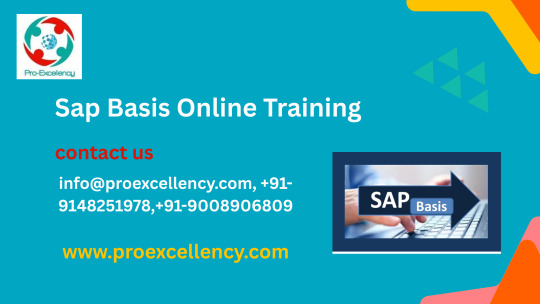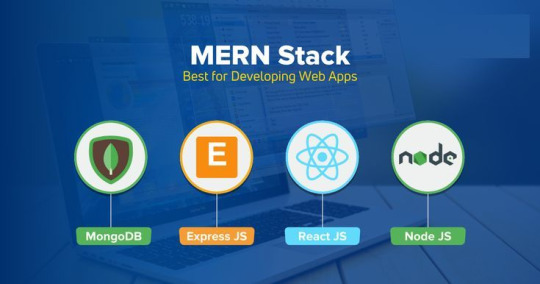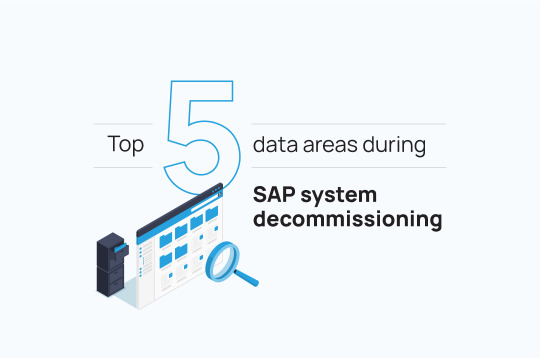#introduction to sap basis
Explore tagged Tumblr posts
Text
Material Master Views in SAP: The Ultimate Guide
Introduction of Material Master The material master is a central repository of all the information related to materials in theSAP system. It is the backbone of many operations, such as buying and managing inventories.It is the basis for many tasks, including buying, managing inventories, planning production, and making sales. Keeping the material master up to date makes sure that everything runs…

View On WordPress
0 notes
Text
Why Choosing the Top SAP Training Institute in Indore Can Define Your Career Future
When planning a successful career in enterprise technology, one of the best decisions you can make is enrolling in a well-recognized SAP training program. The Top SAP Training Institute in Indore offers students and working professionals the opportunity to gain practical skills and knowledge that are in high demand across industries.
SAP (Systems, Applications, and Products in Data Processing) is not just a software suite—it’s a business solution adopted by leading organizations around the world. With businesses increasingly depending on SAP for their operations, finance, logistics, HR, and data analytics needs, learning SAP has become a strategic move for anyone seeking long-term professional growth.
Why SAP? A Career Game-Changer
SAP powers the backbone of business operations for more than 400,000 companies globally. It’s used across sectors including manufacturing, retail, banking, healthcare, and public services to streamline workflows, manage resources, and ensure smooth operations.
The growing need for certified SAP professionals makes it crucial to pursue a SAP course in Indore from a reputable institute. With the right training, you can step into roles such as:
SAP Functional Consultant
SAP Technical Consultant (ABAP/BASIS)
Business Analyst
Project Manager
System Administrator
These roles are not only high-paying but also offer excellent opportunities for advancement and international exposure.
Why Indore? A Promising Hub for SAP Aspirants
Indore is quickly rising as a regional hub for IT education and professional training. Home to prestigious institutions like IIM and IIT, the city is also witnessing an increase in demand for SAP professionals, thanks to the rise of local startups and IT companies.
Choosing a SAP Training Institute in Indore gives you several advantages:
Affordable course fees compared to metro cities
Access to experienced trainers and modern training infrastructure
Strong local job placement network
Flexible schedules for working professionals and students
Indore also offers a quality-of-life advantage—less traffic, lower living costs, and a supportive academic environment.
What Makes the Top SAP Training Institute in Indore Stand Out?
With so many options available, how do you identify the best institute for your SAP training? Here are some key features that define a top-quality training center:
1. Experienced & Certified Faculty
Look for instructors with SAP certifications and real-world industry experience. This ensures that you’re learning not just theory, but practical skills relevant to the workplace.
2. Comprehensive SAP Modules
A reputed SAP course in Indore should offer training in all the major modules:
SAP FICO (Financial Accounting & Controlling)
SAP MM (Material Management)
SAP SD (Sales & Distribution)
SAP HCM (Human Capital Management)
SAP ABAP (Programming)
SAP BASIS (System Administration)
This allows you to choose a specialization that aligns with your career interests or current job role.
3. Live Projects & Practical Training
Hands-on practice is vital. The top institutes provide access to SAP servers, real-time case studies, and simulation projects to help you learn by doing.
4. Placement Assistance
An excellent SAP Training Institute in Indore will help you build your resume, prepare for interviews, and connect you with companies that are actively hiring SAP-certified talent.
5. Updated Curriculum
SAP technologies are constantly evolving. The best institutes update their course material regularly and follow the latest SAP syllabus aligned with certification exams.
What You’ll Learn in a SAP Course in Indore
Your learning journey typically includes:
Introduction to ERP & SAP: Understanding enterprise processes and SAP architecture
Module-Specific Training: Learning how SAP applies to finance, logistics, HR, etc.
Hands-On Practice: Working on SAP systems with guided assignments
Certification Preparation: Mock tests and tips to crack SAP exams
Career Guidance: Resume writing, interview preparation, and career path mapping
Most courses span 8 to 12 weeks depending on your learning pace and selected module. Institutes usually offer weekday and weekend batches, and some also provide online learning options.
Benefits of SAP Certification from a Trusted Institute
Completing your SAP training and certification from the Top SAP Training Institute in Indore can have a transformative impact on your career:
High Earning Potential: SAP-certified professionals often earn 30–50% more than non-certified peers.
Global Career Opportunities: SAP is used internationally, opening doors to global employment.
Job Security: With enterprise tech evolving, SAP skills will remain in demand.
Fast Career Growth: SAP-trained employees are often promoted faster and given strategic roles.
Whether you’re an IT professional, finance graduate, MBA, or working in HR, adding SAP skills to your profile makes you a more attractive candidate.
Who Should Take a SAP Course in Indore?
A SAP course in Indore is suitable for a wide audience:
Fresh Graduates: Especially from commerce, computer science, engineering, or business backgrounds.
Working Professionals: Who want to upskill, change career paths, or get promoted.
Entrepreneurs & Business Owners: Who want to better manage ERP systems in their own organizations.
Regardless of your background, SAP offers a clear pathway to higher-paying jobs and long-term career growth.
Conclusion: Make a Strategic Move for Your Career
SAP is more than just a skill—it’s a career-defining capability that companies are actively looking for. Whether you’re starting your career or looking for your next big break, investing in SAP education is a wise move.
With its growing training infrastructure, skilled educators, and strong industry connections, Indore is the ideal place to begin. Choose the Top SAP Training Institute in Indore to ensure you receive the guidance, hands-on experience, and certification support you need to thrive.
0 notes
Text

SAP BASIS Training with Interview & Certification
What is SAP BASIS?
SAP BASIS (Business Application Software Integrated Solution) is the technical foundation that helps the complete SAP landscape. It consists of machine installation, configuration, person administration, performance monitoring, troubleshooting, and plenty more. BASIS acts as the bridge among the working system, database, and SAP packages — making it a important skill set for system administrators and consultants alike.
Why Choose Online Training?
Online studying has emerge as the new norm, imparting flexibility, comfort, and accessibility for beginners throughout the globe. Our SAP BASIS Online Training is structured to cater to beginners in addition to skilled experts. Whether you’re a fresher exploring career opportunities in SAP or an IT admin seeking to upskill, this path fits your desires.
What Sets This Training Apart?
While many publications offer theoretical expertise, this education specializes in actual-time tasks and sensible publicity, making it precise and process-oriented. We consider that arms-on experience is prime to constructing confidence and preparing for real industry roles.
Here’s what you may expect:
Live SAP System Access: Practice on real SAP servers to simulate live environments.
End-to-End Real-Time Scenarios: Work on tasks like device installations, client copies, shipping control, system refreshes, and overall performance tuning.
Industry-Relevant Tasks: Learn how SAP BASIS consultants operate in actual initiatives — monitoring jobs, handling errors, user control, patching structures, and extra.
Expert Guidance: Get mentored by using licensed SAP experts with real industry revel in.
Interview Preparation: Gain insights into generally requested questions, actual-international troubleshooting instances, and certification steerage.
Key Topics Covered
SAP Architecture and System Landscape
Installation and Post-Installation Activities (ECC & S/4HANA)
SAP GUI, SNOTE, and OSS Connections
Client Administration (Copy, Export/Import, Deletion)
Transport Management System (TMS) Configuration
User and Role Administration
System Monitoring and Background Job Management
Applying Support Packages and Kernel Upgrades
Introduction to HANA Database Administration
System Refresh and Backup Strategies
Troubleshooting and Daily Administration Tasks
Who Should Take This Course?
Fresh graduates or IT aspirants trying to enter SAP
System directors and DBAs searching for SAP-unique expertise
Professionals aiming to replace into SAP BASIS roles
Anyone making ready for SAP BASIS certification (C_TADM certification)
No earlier SAP experience is wanted, though a primary expertise of OS and DB concepts will assist you grasp subjects faster.
Career Benefits of Real-Time Projects
Many SAP BASIS novices struggle to bridge the gap between learning and actual-global utility. That’s in which actual-time task paintings turns into essential. By handling actual venture situations throughout the course, you’ll:
Understand how obligations are achieved in actual environments
Build a sturdy resume with hands-on revel in
Gain the self assurance to stand interviews and patron discussions
Stand out from different applicants with simply theoretical expertise
SAP BASIS experts are in call for across industries like production, retail, healthcare, electricity, and IT services. With agencies migrating to S/4HANA, the scope for BASIS admins is increasing in addition.
Ready to Get Started?
Our SAP BASIS Online Training with Real-Time Projects is not just another course—it’s a launchpad to a rewarding IT career. Whether you’re aiming for a full-time SAP BASIS role, freelance projects, or preparing for certification, this training will give you the tools and confidence to succeed.
Enroll today and start building your future in SAP with real-world experience from day one!
[email protected], +91–9148251978,+91–9008906809
0 notes
Text
SAP ABAP Training Overview
SAP ABAP Training Overview
Introduction to SAP ABAP
SAP ABAP Course in online Training Sophisticated, Application Programming (ABAP) is top -level programming to succeed the application in the SAP circumstance. It allows businesses to make, enhance, and increase SAP applications to meet specific requirements. SAP solutions are on high demand across industries, and mastering the skill of ABAP is very valuable for IT professionals.
Importance of SAP ABAP Training SAP ABAP is the key for professionals looking to specialize in SAP development. Some of the main reasons for doing ABAP training are:
Industry Relevance – Many organizations use SAP, so the expertise in ABAP is very desirable.
Integration Capabilities – ABAP integrates seamlessly with SAP HANA, SAP Fiori, and other modern technologies.
Career Advancement – ABAP developers have a good career prospect in SAP consulting and development roles. Customization and Performance Optimization – Organizations apply ABAP to customize SAP solutions for higher productivity. Major SAP ABAP Training Elements
A formalized SAP ABAP training course entails the following topics of the language:
SAP System Architecture
Understanding the fundamental elements of the SAP world is crucial before entering the ABAP programming arena:
SAP NetWeaver Platform
SAP GUI and Web-Based Interfaces
Database and Application Layers
SAP Modules and Business Processes
ABAP Development Environment
SAP ABAP development is done within the ABAP Workbench that includes:
ABAP Editor – Writing and editing ABAP code.
Data Dictionary (SE11) – Defining database objects such as tables and views.
Function Builder (SE37) – Creating function modules.
Class Builder (SE24) – Implementing object-oriented programming.
Debugging Tools – Identifying and fixing code errors.
Core Concepts Covered under Training
A full-fledged SAP ABAP training program is designed to initiate learners into crucial ABAP concepts:
Basic Syntax and Data Types
Data Types: Integer, Float, Character, String, Date, Time
Variables and Constants
Operators and Expressions
Control Statements (IF, CASE, LOOP, WHILE)
Modularization Techniques
Subroutines (FORM and ENDFORM)
Function Modules
Methods and Classes (Object-Oriented ABAP)
Database Interaction
Creating Database Tables
SELECT, INSERT, UPDATE, DELETE Statements
Joins and Aggregate Functions
Open SQL vs. Native SQL
Report Development
Classical Reports
Interactive Reports
ALV (ABAP List Viewer) Reports
SmartForms and SAP Script
Debugging and Performance Optimization
Debugging ABAP Programs
Runtime Analysis and SQL Tracing
Code Inspector and Performance Tuning
Selecting a Quality SAP ABAP Training Program
There are several criteria to look for in choosing an Internet-based or in-class ABAP training course:
Comprehensive Curriculum : The program should cover all types of basic and advanced ABAP topics. Practical Exercises : Prepared assignments and actual projects will enforce the learned concepts. Experienced Trainers : Learning from industry professionals will enhance knowledge retention. Certification Preparation : While some of these programs prepare learners for SAP ABAP certification. Community Support – There is a learner community and instructor support for learning.
Career Options for ABAP Developers
There are many career options that arise with ABAP expertise, including:
ABAP Developer – Develops and maintains SAP applications.
SAP Technical Consultant – Implementation and optimization of SAP solutions.
SAP Functional Consultant – Team collaboration with the technical teams for SAP customization.
SAP Basis Administrator – Administration of SAP system landscapes.
SAP HANA Developer – Work on SAP's in-memory computing platform.
Conclusion The training in SAP ABAP gives knowledge and skills in developing, customizing, and optimizing SAP applications. With the right training structure, a beginner will build his confidence and expertise in ABAP programming to result in great career prospects within the SAP ecosystem. Mastering ABAP gives professionals the potential to contribute to business success in businesses using SAP solutions and career advancement in enterprise software development.
1 note
·
View note
Text
SAP Basis Consultant
Introduction In this role, you’ll work in one of our IBM Consulting Client Innovation Centers (Delivery Centers), where we deliver deep technical and industry expertise to a wide range of public and private sector clients around the world. …
0 notes
Text
Best IT Courses In Bhubaneswar: Seeree Services Pvt Ltd.
Introduction:
Seeree is one of the best IT training institute and Software industry, features completely Industrial training on Python , PHP , .NET , C Programming,Java ,IOT , AI , GD PI , ORACLE and ALL CERTIFICATION COURSES as well as provides seminar, cultural activity and jobs.
Course We Provide:
1.Java Fullstack 2.Python Fullstack 3.PHP Fullstack 4.PrePlacement Training & Sp.Eng
.NET Fullstack
6.SEO/Digital Marketing 7.SAP 8.MERN 9.Software Testing
Course 1: WHY BEST JAVA TRAINING CLASSES IN BHUBANESWAR AT SEEREE

A class in Java is where we teach objects how to behave. Education at seeree means way to success. The way of teaching by corporate trainers will bloom your career. We have the best java training classes in Bhubaneswar. 100% Placement Support. Job Support Post Training. This course will give you a firm foundation in Java, commonly used programming language.
Course 2: WHY BEST PYTHON COURSE IN BHUBANESWAR AT SEEREE

Seeree offers best python course in Bhubaneswar with 100% job assurance and low fee. Learn from real time corporate trainers and experienced faculties. Groom your personality with our faculty. Seeree helps to build confidence in students to give exposure to their skills to the company.
Course 3: WHY PHP AT SEEREE

Seeree is the best training institute which provide PHP Training courses in bhubaneswar and all over odisha We aim the students to learn and grow altogether with the need of IT firms.
Course 4: WHY BEST SPOKEN ENGLISH TRAINING CLASSES IN BHUBANESWAR AT SEEREE

Exercise on different grammatical constructions, Identification of the grammatical devices forms different texts like newspapers, poems, stories, etc.
Course 5: WHY BEST .NET COURSE IN BHUBANESWAR AT SEEREE

Seeree offers best .NET course in Bhubaneswar with 100% job assurance and low fee. Learn from real time corporate trainers and experienced faculties. Groom your personality with our faculty. Seeree helps to build confidence in students to give exposure to their skills to the company.
Course 6: WHY BEST DIGITAL MARKETING SEO COURSE IN BHUBANESWAR AT SEEREE

Our Digital marketing training course is designed to cut through the clutter of digital marketing and provide a clear overview of this dynamic new world. Marketing is changing. Traditional approaches that have worked for decades, or even centuries, are being swept away. In their place are a confusing mix of new, digital methods of building your brand, reaching out to customers and adding value. Course will cover all key channels, platforms, techniques and strategies and is your fast-track, comprehensive, relevant and cost effective route to becoming a confident, knowledgeable manager with the skills to implement Internet, Social Media and Mobile marketing (eMarketing/marcomms) effectively for business growth and development in the short, medium and long-term. On completion of this course, you would get to know the tid-bids of Digital Marketing. This training Chapter is a comprehensive one covering all the aspects of Digital Marketing. The Chapter is spread over a month and consists of 60 hrs of total sessions.
Course 7: WHY SAP AT SEEREE

SAP refers to Systems, Applications, and Products in Data Processing. Some of the most common subjects covered in these courses include human resource software administration, database management, and business training. Obtaining SAP certification can be done on a stand-alone basis or as part of a degree program.
Course 8: WHY BEST MERN COURSE AT SEEREE

Seeree offers the best MERN course in Bhubaneswar with 100% job assurance and low fees. Learn from real-time corporate trainers and experienced faculty. Seeree helps students build confidence and gain skills to excel in company roles.
Course 9: WHY BEST TESTING COURSE IN BHUBANESWAR AT SEEREE

Seeree offers best Testing course in Bhubaneswar with 100% job assurance and low fee. Learn from real time corporate trainers and experienced faculties. Groom your personality with our faculty. Seeree helps to build confidence in students to give exposure to their skills to the company.
1 note
·
View note
Text
Promote Your Skills with RH Soft Tech’s SAP Online Training: SAP FIORI, SAP BASIS, SAP BTP, SAP Hybris RH Soft Tech provides an array of specialized SAP courses designed to elevate your professional skills and prepare you for real-world SAP roles. With expert instructors, flexible online learning schedules, and practical assignments, RH Soft Tech offers premier courses in SAP FIORI, SAP BASIS, SAP BTP, and SAP Hybris, catering to learners across major cities such as Mumbai, Agra, Varanasi, Chandigarh, Kochi, Delhi, and many more. Enroll now and become proficient in SAP technologies, enhancing your career in IT, business, and digital transformation.
1. SAP Hybris: Mastering E-commerce and Customer Engagement Solutions
SAP Hybris is a robust platform that powers e-commerce, allowing organizations to offer personalized shopping experiences, efficient product content management, and powerful omnichannel solutions. RH Soft Tech’s SAP Hybris Online Training empowers you with comprehensive knowledge in ecommerce frameworks, content management, customer data management, and analytics. With demand for skilled professionals growing in fields like SAP Hybris in Mumbai, Agra, Varanasi, Chandigarh, and beyond, this course is designed to make you job-ready. Key Topics Covered:
SAP Hybris architecture and components
Product content management (PCM)
Order management and fulfillment
Customer service and engagement
Integrations with other SAP modules and third-party applications By mastering SAP Hybris, you’ll be equipped for roles in e-commerce, digital marketing, and customer experience management. Whether you're in Hyderabad, Pune, Kolkata, or Jaipur,
this course is accessible to you.
2. SAP BASIS: The Foundation of SAP System Administration
SAP BASIS is the backbone of SAP system administration, supporting SAP systems and managing its databases, system configurations, and user access. With RH Soft Tech’s SAP BASIS Online Training courses, you will gain hands-on experience in system installation, configuration, and troubleshooting, along with essential skills in database management and system performance optimization. Key Learning Areas:
SAP system architecture and landscape
Database management and backup strategies
Security and user management
System performance tuning and load balancing
System upgrades and transport management For aspiring system administrators and IT managers, the demand for SAP BASIS expertise is high in cities like Delhi, Chennai, Bangalore, and Noida. RH Soft Tech prepares you to tackle
complex administrative roles across diverse industries.
3. SAP BTP (Business Technology Platform): The Future of Business Transformation
SAP BTP is SAP’s integrated offering for cloud services, data management, and AI, enabling organizations to innovate at scale. RH Soft Tech’s SAP BTP Online Training delves into topics such as application development, integration with SAP S/4HANA, data governance, and intelligent process automation. This course is ideal for professionals seeking careers in cloud architecture, data analytics, and innovation management. Course Highlights:
Overview of SAP BTP services and architecture
Application development and extensibility
Data and AI solutions on SAP BTP
Cloud integration and API management
Security and compliance in SAP BTP environments Whether you're looking to elevate your cloud skills in Mumbai, Indore, Pune, or Kochi, this
course equips you with essential skills for a rapidly growing field.
4. SAP FIORI: Redefining User Experience with Custom SAP Applications
SAP FIORI is SAP’s solution for user-friendly, modern, and responsive application design. It enhances the user experience of SAP applications and streamlines workflows across devices. RH Soft Tech’s SAP FIORI Online Training includes lessons on design principles, app development, and deployment, tailored for professionals in Mumbai, Hyderabad, Chennai, and other major cities. Key Areas of Focus:
Introduction to SAP FIORI design principles
SAPUI5 framework and app development
Launchpad configuration and deployment
Extending standard SAP FIORI apps
Performance optimization and troubleshooting With SAP FIORI, you’ll be able to enhance usability and efficiency within organizations, meeting the
growing demand for professionals skilled in user experience design across SAP platforms.
Why Choose RH Soft Tech for Your SAP Online Training?
Expert Instructors: Our courses are led by certified SAP professionals who bring real-world experience and insights to each session.
Flexible Online Learning: Access lessons, assignments, and interactive sessions from any city – whether you’re in Kolkata, Bhopal, Surat, or Lucknow, you can pursue these SAP certifications online.
Hands-on Training: Practical assignments and projects reinforce learning, helping you gain experience directly applicable in your career.
Career Support: Our courses offer career guidance and interview preparation, connecting you with resources and potential job opportunities. RH Soft Tech’s comprehensive training approach ensures you’re not only gaining knowledge but also learning how to apply it effectively. You’ll be ready for the demands of global organizations seeking SAP professionals in locations like Nagpur, Jaipur, Vijayawada, and Manipal.
Realize Your SAP Career Goals with RH Soft Tech
With RH Soft Tech’s SAP Online Training programs, you have the opportunity to upskill from anywhere in India. Our SAP courses cover both foundational and advanced topics, making them suitable for beginners, experienced professionals, and those looking to pivot into specialized SAP roles. We have helped countless students across Noida, Patna, Dehradun, Itanagar, Imphal, and Kerala reach their career potential. Begin your SAP journey with us and join the growing number of SAP professionals transforming businesses and driving innovation across the country. Enroll in RH Soft Tech’s SAP Hybris, SAP BASIS, SAP BTP, or SAP FIORI Online Training today to set your career on a path to success.
Connect with Us
Get in touch with RH Soft Tech to learn more about our course offerings and start your SAP career transformation today. Whether you’re in Srinagar, Kota, Nashik, or Bhubaneswar, RH Soft Tech brings top-tier SAP training to you. Enroll now in RH Soft Tech’s online SAP courses and unlock your potential in the SAP ecosystem with training tailored to your location and career goals.
0 notes
Text
A Complete Guide to SAP BASIS Syllabus: Key Modules and Topics
SAP BASIS is the foundation of the SAP system, ensuring that the entire system runs smoothly and efficiently. It encompasses the system administration and technical infrastructure of SAP applications. If you're looking to start a career in SAP or enhance your technical skills, understanding the SAP BASIS syllabus is essential. This guide provides a comprehensive overview of the key modules and topics covered in the SAP BASIS syllabus, giving you a clear understanding of what to expect in an SAP BASIS course and its significance in the industry.
Introduction to SAP BASIS and Its Importance
SAP BASIS (Business Application Software Integrated Solution) is a set of middleware programs and tools that bridge the gap between the SAP application layer and the database. It ensures that the SAP environment functions seamlessly and efficiently. A well-rounded understanding of the SAP BASIS syllabus will equip you with the technical knowledge needed to manage SAP systems, perform upgrades, and handle various administrative tasks.
Professionals who master SAP BASIS can expect rewarding career opportunities in roles such as SAP BASIS Administrator, SAP System Administrator, and IT Consultant. Given the increasing demand for SAP professionals across industries, having a thorough understanding of the SAP BASIS course syllabus will be beneficial for your career development.
Key Modules in the SAP BASIS Syllabus
The SAP BASIS syllabus is structured to provide students with a solid foundation in system administration, security, database management, and more. Below are the key modules you’ll encounter in an SAP BASIS course:
1. Introduction to SAP BASIS
In this module, you will get an overview of SAP BASIS, its architecture, and its role in SAP landscape administration. This introductory module will also cover essential concepts such as client-server architecture, SAP system landscape, and various SAP components like ERP, CRM, and SRM.
2. SAP System Landscape
Understanding the SAP system landscape is critical to working with SAP BASIS. This module covers the three-tier architecture (presentation, application, and database layers) and introduces the concept of system architecture in different environments, such as Development, Quality Assurance, and Production.
3. Installation and Configuration
In this part of the SAP BASIS syllabus, you will learn how to install and configure an SAP system. Topics include system prerequisites, installation procedures, post-installation activities, and initial system configurations. Understanding the installation process is key to becoming a competent SAP BASIS administrator.
4. User Administration and Authorization
This module focuses on user management in SAP, including creating users, assigning roles and authorizations, and managing user security. SAP BASIS professionals are responsible for maintaining the security of the system, making this a critical aspect of the course.
5. Transport Management System (TMS)
The Transport Management System (TMS) is an essential feature of SAP BASIS that allows you to manage system changes, including the transport of custom code and configuration from one system to another. This module will teach you how to configure and use TMS effectively.
6. Performance Monitoring and Tuning
System performance is a key responsibility for SAP BASIS administrators. This part of the SAP BASIS syllabus covers performance monitoring, system tuning, and troubleshooting techniques. You’ll learn how to use tools such as SAP Monitoring, CCMS (Computing Center Management System), and workload analysis tools to ensure optimal system performance.
7. Database Management
In the database management module, students will learn about database architecture, installation, configuration, and backup and recovery techniques. As SAP BASIS professionals, you'll work with databases like Oracle, SQL Server, or SAP HANA. Managing databases is a crucial skill that helps maintain the health of the SAP system.
8. Backup and Recovery
A vital part of system administration is ensuring that the SAP system is recoverable in case of failure. This module will teach you how to implement a backup strategy, perform backups, and restore the system when necessary.
9. Patch Management and Upgrades
Keeping the SAP system up to date with the latest patches and upgrades is a crucial task for SAP BASIS professionals. In this module, you will learn how to apply patches, manage system upgrades, and deal with any issues that arise during these processes.
10. SAP Security Administration
Security is a top priority for any IT infrastructure. This module teaches how to configure system security, including network security, user authentication, and managing encryption. You will also learn how to perform audits to ensure the system complies with security standards.
Career Opportunities After Completing SAP BASIS Training
Mastering the SAP BASIS syllabus opens doors to a wide range of career opportunities. Companies across industries, including manufacturing, retail, finance, and healthcare, rely on SAP systems for their operations, and they need skilled professionals to manage and maintain these systems.
As a certified SAP BASIS professional, you can explore the following career roles:
SAP BASIS Administrator: Manage and maintain the technical infrastructure of SAP systems.
SAP System Administrator: Oversee the installation, configuration, and daily maintenance of the SAP environment.
SAP Consultant: Provide expert advice to businesses on SAP implementation and administration.
IT Manager: Supervise the IT infrastructure of organizations, including SAP systems.
With growing demand for SAP professionals, completing a SAP BASIS course in Pune can significantly boost your job prospects.
Choosing the Right SAP BASIS Course
When looking for a course, it's essential to select the right training institute that offers a comprehensive SAP BASIS course syllabus. Be sure to evaluate the course content, practical exposure, and certification options. Moreover, the SAP BASIS course fee should fit your budget, and you should also inquire about placement assistance and the opportunity to earn a SAP BASIS Training Certificate in Pune upon completion of the course.
What to Expect in SAP BASIS Training
Enrolling in a SAP BASIS Training Institute in Pune will provide you with practical, hands-on experience in SAP system administration. You'll have the chance to work on real-time projects, interact with industry experts, and gain valuable insights into SAP BASIS tasks such as system monitoring, performance tuning, and database management.
Furthermore, you'll receive detailed instruction on the SAP BASIS course syllabus, ensuring that you’re fully prepared for job roles requiring SAP technical expertise.
Conclusion
The SAP BASIS syllabus is designed to provide a solid foundation in system administration, ensuring that SAP environments run smoothly and efficiently. By mastering these key modules and topics, you'll be equipped to take on critical roles in SAP system administration. Whether you're looking to start your career or enhance your skills, completing an SAP BASIS course in Pune offers numerous career opportunities in a fast-growing field.
To ensure you get the best training, look for a reputable SAP BASIS Training Institute in Pune that offers a well-rounded course with hands-on experience, real-world projects, and certification opportunities. The right institute will provide a detailed SAP BASIS course syllabus, help you understand the SAP BASIS course fee, and prepare you for the SAP BASIS Training Certificate in Pune.
This comprehensive guide has highlighted the essential elements of the SAP BASIS syllabus and demonstrated why it is crucial for a successful career in SAP. By investing in your education, you can open doors to a promising future in the IT and SAP industry.
0 notes
Text

SAP Central Finance Online Training — Master the Future of Financial Transformation
In today’s rapid-paced virtual commercial enterprise environment, corporations are increasingly more adopting SAP Central Finance (CFIN) as a strategic option to consolidate financial records and allow actual-time reporting throughout multiple ERP landscapes. Our SAP Central Finance Online Training Top & Best Rank of Banglore 2025is designed to equip professionals with in-depth knowledge and hands-on abilities to put into effect and manage Central Finance tasks efficaciously.
What is SAP Central Finance?
SAP Central Finance is a deployment option of SAP S/4HANA that permits companies to duplicate financial transactions from various supply systems right into a relevant SAP S/4HANA system. It permits a unified, real-time monetary view throughout a complex system panorama without disrupting present ERP environments. Central Finance is specially beneficial for massive firms present process a phased S/4HANA migration or managing a couple of ERP instances due to mergers, acquisitions, or regional operations.
With SAP Central Finance, businesses can:
Harmonize economic statistics from one of a kind supply systems
Enable real-time financial reporting and analytics
Accelerate length-end ultimate approaches
Lay the muse for a clean S/4HANA transition
Course Overview
Our SAP Central Finance Online Training is carefully curated for SAP consultants, finance experts, and IT experts who need to construct knowledge in CFIN implementation, configuration, and support. Whether you are looking to begin a career in Central Finance or upskill on your subsequent undertaking, this training gives you with all of the expertise you need.
The route covers all key components and functionalities of SAP Central Finance:
Introduction to SAP S/4HANA and Central Finance
Architecture and landscape assessment
Initial load and real-time replication the use of SLT
Mapping and transformation (fee centers, earnings facilities, GL debts, and many others.)
Document replication and errors coping with
Central Payments and significant clearing procedures
Master data governance and MDG integration
AIF (Application Interface Framework)
Monitoring and troubleshooting replication problems
Integration with other SAP modules (CO, FI, AA, etc.)
Best practices for implementation and rollout approach
Training Highlights:
a hundred% Online Delivery — Attend from everywhere in the international
Expert Trainers — Learn from licensed professionals with real task revel in
Live Interactive Sessions — Engage with trainers in actual time
Hands-On Labs — Practice on SAP Central Finance sandbox systems
Recorded Sessions — Access to all session recordings for revision
Real-Time Projects — Work on case studies and enterprise eventualities
24/7 Support — Get help with doubts and assignments whenever
Interview & Resume Assistance — Boost your job readiness
Certification Guidance — Prepare for SAP CFIN certification with self belief
Who Should Attend?
This route is ideal for:
SAP FICO experts aiming to extend into S/4HANA and Central Finance
SAP Technical specialists (ABAP, BASIS) trying to apprehend CFIN structure
SAP Project Managers overseeing S/4HANA transformation initiatives
Financial analysts and controllers worried in multi-ERP environments
Professionals making ready for Central Finance implementation roles
Anyone seeking to build a future-proof career in SAP Finance domain
Whether you’re a brisker in SAP or an experienced consultant looking to upskill, this course affords the appropriate combo of principle and practicals to make you venture-equipped.
Learning Outcomes
By the stop of the schooling, you will:
Understand the enterprise cost and technical landscape of SAP Central Finance
Be capable of layout and configure a Central Finance structure
Learn to carry out initial load and real-time replication of economic records
Understand the way to control errors the usage of AIF and make certain information consistency
Be capable of integrating Central Payments and related functionalities
Gain palms-on enjoy in tracking, troubleshooting, and helping a CFIN device
Be prepared to work on real-world SAP Central Finance implementation initiatives
Be well-organized for SAP certification and process interviews on this niche domain
Why Choose Us?
We are dedicated to turning in extremely good SAP schooling that bridges the space among gaining knowledge of and actual-world software. Our instructors are pro specialists with good sized enterprise and consulting enjoy in SAP S/4HANA and Central Finance. With customized mentoring, based direction content material, and a focal point on practical capabilities, we ensure our freshmen are absolutely organized for each certification and real-time challenge execution.
Certification Support
We offer entire guidance for the SAP Central Finance Certification (SAP Certified Application Associate — Central Finance in SAP S/4HANA). From understanding the examination sample to practising with sample questions, we provide all of the gear and suggestions you need to clean the examination without difficulty.
Career Opportunities
Central Finance is a excessive-call for talent in the SAP ecosystem, in particular among multinational corporations and groups present process digital transformation. After finishing this schooling, you may observe for roles along with:
SAP Central Finance Consultant
SAP S/4HANA Finance Consultant
SAP CFIN Architect
SAP Finance Transformation Analyst
SAP FICO Consultant (with CFIN specialization)
These roles regularly command top rate salaries and provide fantastic boom possibilities throughout industries like manufacturing, retail, banking, logistics, and more.
Start your SAP Central Finance journey nowadays! Join our SAP Central Finance Online Training to stay in advance of the curve and emerge as a part of the subsequent era of SAP finance professionals.
[email protected], +91–9148251978,+91–9008906809
0 notes
Text
SAP BASIS upgrade strategies involve planning and executing updates to the SAP system to ensure it runs efficiently and securely. These upgrades are essential for keeping up with the latest SAP features, security patches, and performance improvements.
0 notes
Text
Introduction
Hello, world! This blog is about how (not) to write code. These are my opinions. As such, you ignore them at your own peril ���
The premise of this blog is an embarrassing truth: turns out, we only have a faint idea of how to write "good" code. Here is what the venerable xkcd has to say about that:

My hobby: citing xkcd.
In order to fix a problem, we should try to understand where it comes from. To answer that, let's take a look at another piece of classic programmer humor:

Here is what I think we should glean from this strip: bad code comes from not seeing our code through the eyes of others. Walking in someone else's shoes is hard (hence even good code has > 0 WTFs /min). This will be a recurring theme of this blog. Check out this principal in the venerable Google's C++ Style Guide (another thing that I like to cite):
Optimize for the reader.
I'm sure they are not the first nor the last person to say something like this, but hopefully, by dropping the name "Google", I can lend some gravitas to this commandment. Let me put it another way: it really doesn't matter if your code makes sense to YOU (the author). What matters is that your code is readily understandable to the next poor sap.
(The next poor sap might be a future version of yourself, a version that does not remember all the things that are currently fresh in your mind. You might not want to hear this, but science tells us that we are bad at putting ourselves into the shoes of our past selves. For example, people have a tendency to misremember what opinions they held in the past, thinking that their old opinions are closer to their current opinions. We really cannot get out of our own shoes, not even to get into our own old shoes!)
Tangent
Will I actually keep posting here? I'm actually optimistic, because I often write similar feedback in code reviews. That will give me motivation to post here on a regular basis, because if I already posted my opinion here, I can cite myself when the similar issues come up again later (which it often does).
0 notes
Text
Cloud Migration and SAP Basis
Introduction As businesses increasingly move their IT infrastructure to the cloud, understanding how this transition affects SAP Basis is crucial. Cloud migration offers numerous benefits but also comes with specific challenges for SAP Basis administrators. This blog explores what you need to know about cloud migration in the context of SAP Basis.

1. Benefits of Cloud Migration for SAP
Scalability and Flexibility Cloud environments offer scalable resources, allowing SAP systems to adapt to varying workloads efficiently. This flexibility supports business growth and fluctuating demands.
Cost Efficiency Cloud solutions often reduce the need for physical hardware and associated maintenance costs. Pay-as-you-go models can lead to significant savings.
Enhanced Performance Cloud providers offer high-performance computing resources and storage, which can improve the overall speed and efficiency of SAP applications.
2. Key Considerations for SAP Basis
System Compatibility Ensure that your SAP environment is compatible with your chosen cloud platform. Different cloud providers may have specific requirements or limitations.
Data Migration Strategy Develop a comprehensive data migration plan to ensure that all SAP data is accurately and securely transferred to the cloud. This includes validating data integrity and testing migration processes.
Security and Compliance Evaluate the security measures provided by the cloud vendor and ensure they meet your organization’s compliance requirements. Implement additional security controls if necessary.
Performance Monitoring Cloud environments require different monitoring tools and strategies compared to on-premises systems. Use cloud-native monitoring solutions to track performance and address issues proactively.
3. Challenges and Solutions
Downtime and Disruption Minimize downtime during the migration process by planning carefully and performing migrations during off-peak hours. Utilize staging environments to test the migration before going live.
Integration Complexity Integrating SAP systems with other cloud services can be complex. Work with cloud experts and use integration tools to streamline this process.
Skill Requirements Cloud migration may require new skills for your SAP Basis team. Invest in training and resources to build expertise in managing SAP in a cloud environment.
4. Best Practices for a Smooth Transition
Thorough Planning Create a detailed migration plan that includes timelines, resource allocation, and risk management strategies.
Collaborative Approach Work closely with cloud service providers and internal stakeholders to ensure alignment and address any issues promptly.
Ongoing Optimization Post-migration, continuously monitor and optimize your SAP environment in the cloud to maximize performance and efficiency.
Conclusion Migrating SAP systems to the cloud can offer significant advantages in terms of scalability, cost savings, and performance. However, it’s essential to address the unique challenges associated with this transition. By understanding the key considerations and best practices, SAP Basis administrators can ensure a successful cloud migration that supports their organization’s goals.
0 notes
Text
How to Leverage Contingent Staffing Insights and Challenges
Introduction
In today's fast-paced and dynamic business environment, companies are increasingly adopting flexible workforce strategies to stay competitive. One such strategy is contingent staffing, where organizations rely on non-permanent employees to meet their labor needs. These employees, often referred to as contingent workers, include freelancers, contractors, temporary staff, and gig workers. Contingent staffing allows businesses to quickly scale their workforce, access specialized skills, and manage costs effectively.
This article delves into the evolving landscape of contingent staffing, highlighting key trends, benefits, challenges, and frequently asked questions. We will explore how companies can leverage this model to optimize their workforce strategy while staying ahead of the curve.
Understanding Contingent Staffing
Contingent staffing refers to the practice of hiring workers on a temporary, project-based, or non-permanent basis. These workers are not part of the company's full-time workforce but are engaged to meet specific needs, such as covering peak workloads, executing short-term projects, or filling in for absent employees.
Contingent workers can be classified into several categories:
Temporary Workers: Hired for a limited period, often through staffing agencies, to address short-term needs.
Contractors: Independent professionals engaged on a contractual basis for specific projects or tasks.
Freelancers: Self-employed individuals offering specialized services to multiple clients.
Gig Workers: Individuals engaged in short-term, on-demand work through platforms like Uber, TaskRabbit, and Upwork.
Consultants: Subject matter experts providing advisory services on a project basis.
Key Trends in Contingent Staffing
The contingent workforce has grown significantly over the past decade, driven by technological advancements, economic factors, and shifting workforce preferences. Here are some of the most notable trends shaping the contingent staffing landscape:
1. Growth of the Gig Economy
The gig economy has revolutionized the way people work, offering flexibility and autonomy to workers while providing businesses with access to a diverse talent pool. Platforms like Uber, Lyft, Upwork, and Fiverr have made it easier for individuals to find gig work, whether as a primary source of income or as a side hustle. According to recent studies, the gig economy is projected to grow at a compound annual growth rate (CAGR) of 17.4% between 2023 and 2028.
2. Increased Reliance on Remote Work
The COVID-19 pandemic accelerated the shift towards remote work, and this trend has continued in the post-pandemic era. Companies are now more open to hiring contingent workers from different geographical locations, enabling them to tap into a global talent pool. Remote work also allows contingent workers to enjoy greater flexibility, making it an attractive option for both employers and employees.
3. Focus on Workforce Diversity and Inclusion
Contingent staffing has emerged as a powerful tool for promoting diversity and inclusion in the workplace. By hiring contingent workers, companies can bring in fresh perspectives, experiences, and skills that may not be available within their existing full-time workforce. Additionally, contingent staffing allows organizations to experiment with different hiring strategies to build a more inclusive workplace culture.
4. Adoption of Workforce Management Technology
The rise of digital platforms and workforce management tools has made it easier for companies to manage their contingent workforce. These technologies offer features such as time tracking, payroll processing, compliance management, and workforce analytics, helping organizations streamline their operations and make data-driven decisions. Some popular platforms in this space include SAP Fieldglass, Workday, and Bullhorn.
5. Shift Towards Outcome-Based Contracts
Instead of hiring contingent workers on an hourly or daily rate, companies are increasingly adopting outcome-based contracts. This approach focuses on achieving specific results or milestones, which aligns the interests of both the employer and the contingent worker. Outcome-based contracts are particularly popular in industries such as IT, marketing, and consulting, where project deliverables are well-defined.
6. Emphasis on Skill Development and Upskilling
As the demand for specialized skills continues to grow, companies are investing in the upskilling and reskilling of their contingent workforce. Training programs, certifications, and workshops are being offered to ensure that contingent workers stay updated with the latest industry trends and technologies. This not only enhances the value of contingent workers but also helps companies maintain a competitive edge.
Benefits of Contingent Staffing
Contingent staffing offers several advantages for businesses, making it a popular choice in various industries. Some of the key benefits include:
1. Cost Efficiency
Contingent staffing allows companies to reduce labor costs by hiring workers only when needed. This eliminates the expenses associated with full-time employees, such as benefits, insurance, and paid time off. Additionally, companies can avoid the costs of recruitment, training, and onboarding, as contingent workers are often ready to start immediately.
2. Access to Specialized Skills
Contingent workers bring specialized skills and expertise that may not be available in the existing workforce. This is particularly valuable for short-term projects or tasks that require niche knowledge. By leveraging contingent staffing, companies can access a diverse talent pool without the need for long-term commitments.
3. Flexibility and Scalability
Contingent staffing provides companies with the flexibility to scale their workforce up or down based on demand. This is especially useful in industries with fluctuating workloads, such as retail, hospitality, and logistics. Businesses can quickly respond to market changes, seasonal peaks, or unexpected events by adjusting their contingent workforce accordingly.
4. Faster Time-to-Hire
The process of hiring full-time employees can be time-consuming, often taking weeks or even months. In contrast, contingent staffing allows companies to fill positions quickly, as many contingent workers are available on short notice. This agility is crucial for businesses operating in fast-paced environments where time is of the essence.
5. Risk Mitigation
Contingent staffing can help companies mitigate risks associated with hiring. Since contingent workers are not permanent employees, businesses can avoid the long-term financial commitments and potential legal issues that may arise with full-time hires. Moreover, companies can easily terminate contracts with contingent workers if their performance does not meet expectations.
Challenges of Contingent Staffing
While contingent staffing offers numerous benefits, it also presents certain challenges that organizations must address to maximize its effectiveness:
1. Compliance and Legal Issues
Managing a contingent workforce involves navigating complex legal and compliance requirements, including labor laws, tax regulations, and worker classification. Misclassifying workers as independent contractors instead of employees can lead to legal penalties and fines. Companies must ensure they adhere to local, state, and federal regulations to avoid potential legal complications.
2. Integration with Full-Time Workforce
Integrating contingent workers with the full-time workforce can be challenging, especially in terms of communication, collaboration, and culture. Contingent workers may feel isolated or disconnected from the company's mission and values, leading to lower engagement and productivity. Organizations need to create an inclusive environment that fosters collaboration between contingent and full-time employees.
3. Quality Control
Ensuring the quality of work delivered by contingent workers can be difficult, particularly if they are not familiar with the company's processes or standards. Companies must implement robust performance management systems and provide clear expectations to maintain high-quality output from their contingent workforce.
4. Data Security and Confidentiality
Contingent workers may have access to sensitive company information, raising concerns about data security and confidentiality. Businesses must implement strict data protection measures, such as non-disclosure agreements (NDAs), secure access protocols, and regular audits, to safeguard their intellectual property and confidential data.
5. Dependency on External Talent
Over-reliance on contingent workers can lead to a dependency on external talent, which may affect the company's ability to build internal expertise and retain knowledge. Organizations should strike a balance between contingent staffing and full-time employment to ensure long-term sustainability.
Trends in Contingent Staffing: A Deeper Dive
1. The Rise of Hybrid Work Models
The shift towards hybrid work models, where employees split their time between the office and remote locations, has had a profound impact on contingent staffing. Companies are increasingly adopting hybrid work arrangements for their contingent workforce as well, allowing them to attract talent from different regions and accommodate diverse work preferences.
Hybrid work models also enable businesses to optimize their office space and reduce overhead costs. By allowing contingent workers to work remotely, companies can access a broader talent pool without the constraints of geographical boundaries. However, managing a hybrid contingent workforce requires effective communication, collaboration tools, and policies that support remote work.
2. The Role of Artificial Intelligence (AI) and Automation
Artificial intelligence (AI) and automation are transforming the way companies manage their contingent workforce. AI-powered platforms can streamline the recruitment process by analyzing resumes, matching candidates with job requirements, and predicting candidate success based on historical data. This not only speeds up the hiring process but also improves the quality of hires.
Automation tools can also enhance workforce management by automating routine tasks such as time tracking, payroll processing, and compliance reporting. This allows HR teams to focus on more strategic activities, such as workforce planning and talent development. Additionally, AI-driven analytics can provide insights into workforce trends, helping companies make informed decisions about their contingent staffing strategy.
3. Demand for Niche Skills and Expertise
As industries continue to evolve, the demand for niche skills and expertise is on the rise. Companies are increasingly relying on contingent workers to fill these specialized roles, as they often possess unique skills that are not readily available in the full-time workforce. For example, in the technology sector, there is a growing demand for professionals with expertise in areas such as cybersecurity, artificial intelligence, and blockchain.
To stay competitive, companies must be proactive in identifying emerging skill gaps and sourcing contingent workers who can address these needs. This requires a deep understanding of industry trends, as well as the ability.
#Contingent Staffing Agency in the USA#contingent staffing#contingent staffing Solutions#Staffing Service USA
0 notes
Text
Top 5 data areas during a SAP system decommissioning

Introduction
SAP system decommissioning refers to the process of retiring or retiring SAP systems that are no longer needed or relevant for an organization’s operations. It involves systematically removing and shutting down SAP landscapes, including servers, databases, and associated applications, in a controlled and planned manner.
Here are the top five areas that must not be overlooked during a SAP system decommissioning. These areas form the basis for being able to prove the completeness of archiving at the end. Cluster tables, GOS documents, and ADK files, in particular, are always a challenge.
1. Cluster Tables
SAP cluster tables are special database tables in SAP systems that are optimized for storing large amounts of data. Cluster tables are designed to provide high performance in processing data, particularly in applications that require a high number of read and write accesses.
Unlike regular database tables that are stored in individual records, cluster tables store multiple records in a single block or cluster. This can reduce access times to the data in the table, as fewer read and write operations are required to read or write a group of records.
Cluster tables are often used in SAP applications that need to process a high volume of transactions or large amounts of data, such as in materials management or finance. By using cluster tables, these applications can achieve better performance and faster processing of data.
2. GOS Document
GOS (Generic Object Services) Documents refer to a feature in SAP that allows users to attach documents, notes, and other types of files to various objects in the system, such as orders, customers, or materials. This functionality can be accessed through the GOS toolbar, which appears as a button in various transaction codes in SAP.
With GOS Documents, users can easily attach files to an object, view or edit existing attachments, and even create and send emails with attachments directly from SAP. These files can be of various types, including Microsoft Office documents, images, PDFs, and other file formats.
By using GOS Documents, users can streamline their work processes and reduce the need for external file storage systems or manual tracking of documents. They can also ensure that all relevant information is stored in one place and easily accessible to authorized users.
3. ADK Object
ADK (Archiving Data Consistency) objects are special objects in SAP systems that are used for archiving data. With these objects, users can archive and store data from various SAP applications to improve system performance and save storage space.
ADK objects contain information about the archived data, such as the archiving area, archiving key, and archiving status. These objects also ensure that the archived data remains consistent and integrated, and can be retrieved at any time.
Generally, ADK objects are used in SAP systems to archive large amounts of data that are no longer required on a regular basis but must be retained for compliance and audit purposes. Archiving this data can help systems operate faster and free up storage space while keeping the data available for future requirements.
To use ADK objects in SAP systems, users must first define an archiving strategy and create corresponding archiving profiles that can then be used in SAP applications.
4. All SAP Tables - Business Objects
SAP tables are database tables in SAP systems that are used to store and manage data for various applications and processes. These tables contain specific data fields that are needed for each application.
There are thousands of SAP tables used for different applications and modules in SAP systems.
Each SAP table has a unique name and structure specific to the application for which it is used. The tables can also be linked to each other to allow for the use of data across different applications.
To access SAP tables, users can use special transaction codes in SAP or access the tables through the database management tools.
5. Documents and Toa Tables
TOA (SAP Document Management System) tables in SAP are special database tables that are used for managing documents in SAP systems. With these tables, users can store and manage documents in various formats, such as Microsoft Office documents, images, PDFs, and other file types.
#carve-out#it application decommissioning#mergers and acquisitions#sap system#system decommissioning#insolvency#liquidation#legacy system#SAP system decommissioning
1 note
·
View note
Text
Basis HANA

SAP Basis HANA: Powering the Real-Time Enterprise
SAP HANA is a disruptive in-memory database and application platform fundamentally reshaping how businesses operate. As an integral part of the SAP ecosystem, SAP Basis administrators play a crucial role in managing HANA environments for optimal performance and efficiency. Let’s dive into what Basis HANA is all about.
What is SAP Basis?
SAP Basis is the technical backbone of SAP systems. Basis administrators handle:
Installation and Configuration: Setting up the underlying software for SAP landscapes.
System Administration: Monitoring, user management, troubleshooting, and performance optimization.
Upgrades and Patches: Keeping the SAP environment up-to-date and secure.
Transport Management: Moving developments and customizations between SAP systems.
Why Basis HANA is Different
SAP HANA introduces unique characteristics that Basis administrators need to master:
In-Memory Computing: HANA stores data in RAM (memory) rather than traditional hard disks, leading to blazing-fast data processing for real-time analytics. This requires different resource management and performance tuning considerations.
Columnar Storage: HANA uses a columnar data storage model, optimized for analytical queries, rather than the row-based approach of traditional databases. Understanding how this impacts data retrieval is key.
Unified Platform: HANA acts as both a database and an application server. Basis administrators need a grasp of both database tasks and application-level management.
Key Tasks for Basis HANA Administrators
Installation and Configuration: Setting up HANA systems, including sizing, storage, and network configuration.
Monitoring and Troubleshooting: Proactively looking at performance metrics, system health, and potential issues in the HANA landscape.
Backup and Recovery: Implementing robust strategies to protect critical HANA data and ensure business continuity.
High Availability and Disaster Recovery: Configuring HANA for resilience in the face of system failures or outages.
Security: Applying security patches and enforcing security policies in the HANA environment.
Learning Path for Basis HANA
Start with the Basics: Solid understanding of SAP Basis fundamentals and general database concepts is a must.
SAP HANA Training: SAP offers specific courses like:
HA100 – SAP HANA Introduction
HA200 – SAP HANA Administration
HA300 – SAP HANA Operations
Hands-On Experience: Practice on SAP HANA systems, even development systems, to gain practical knowledge.
Certifications: Pursue SAP HANA certifications to establish your expertise.
The Future of Basis HANA
As businesses embrace real-time decision-making and data-driven insights, the demand for skilled Basis HANA professionals will keep growing. Staying up-to-date with new HANA features and cloud deployments will remain essential.
youtube
You can find more information about SAP BASIS in this SAP BASIS Link
Conclusion:
Unogeeks is the No.1 IT Training Institute for SAP BASIS Training. Anyone Disagree? Please drop in a comment
You can check out our other latest blogs on SAP BASIS here – SAP BASIS Blogs
You can check out our Best In Class SAP BASIS Details here – SAP BASIS Training
Follow & Connect with us:
———————————-
For Training inquiries:
Call/Whatsapp: +91 73960 33555
Mail us at: [email protected]
Our Website ➜ https://unogeeks.com
Follow us:
Instagram: https://www.instagram.com/unogeeks
Facebook:https://www.facebook.com/UnogeeksSoftwareTrainingInstitute
Twitter: https://twitter.com/unogeek
#Unogeeks #training #Unogeekstraining
0 notes
Note
New story! How exciting, the last one had ended in medias res and I was so curious. Btw Oslov Unlocked has an amazing rythm/built-up.
Related to the wider narrative of this last story's arch: is the change in (especially younger) people's behaviour and mentality, commented upon by various characters, also due to the reformist efforts in the Council? The rest of society strucks me as very static and irl it's often factors like changing socio-economic circumstances or the introduction/access to new ways of thinking that brings mentality changes. But Oslov is truly described as a very stable country.
Also, possibly very minor thing but, in The trip to Harbour at a certain point it's said that, as far as they know in Oslov, there's no books which have remained from the decades prior to the Unravelling. This turns out not to have been true and it seems like Gersha borrows some books from that period in the library. It's never really followed through with everything that happens afterwords, but I've always been curious, what's up with Oslovs not having those books? What kind of books are even left in Bettevy?
Oh, good questions—I need to go back and check on what The Trip to Harbour says about books! In ASB, Tilrey is described as reading Tangle books, which are from before the Unraveling—books from our era and the century or so before. So they have been preserved in Oslov, and I would think in Bettevy too. But they’re all written in languages other than Oslov (which didn’t develop until after the Unraveling), so very few Oslovs actually read them and learn about the before-times.
Oslov is very stable, for sure! Or has been until recently. One thing driving the change in young people’s mentality is the sap shortage caused by Bors and Valgund sabotaging the source of sap—which they did because they knew it would upset the delicate balance of Oslov. This has been playing out in the background of the story, and I haven’t developed it as much as I’d like! But we do occasionally see it—for instance, Besha had a young Upstart boyfriend who was with him mainly for access to sap. Kai’s stream probably also helped radicalize some young Upstarts, but I think making the recreational drug of choice harder to get was the largest factor. And then with the character of Detmer, a young elite drifting toward revolution, we see that sometimes just boredom will do it. I think all those things had more influence than reform in the Council, since the Council is pretty closed and secretive.
With young Laborers, the scarcity of sap was also a factor (since sap is virtually the only currency in Oslos, the basis of the shadow economy that many Laborers participate in), but so were the exciting tales of the rebellious Free Northmen that people were spreading. Anyway, thank you for asking about that, because there’s context I wish I’d had more time to fill in!
0 notes